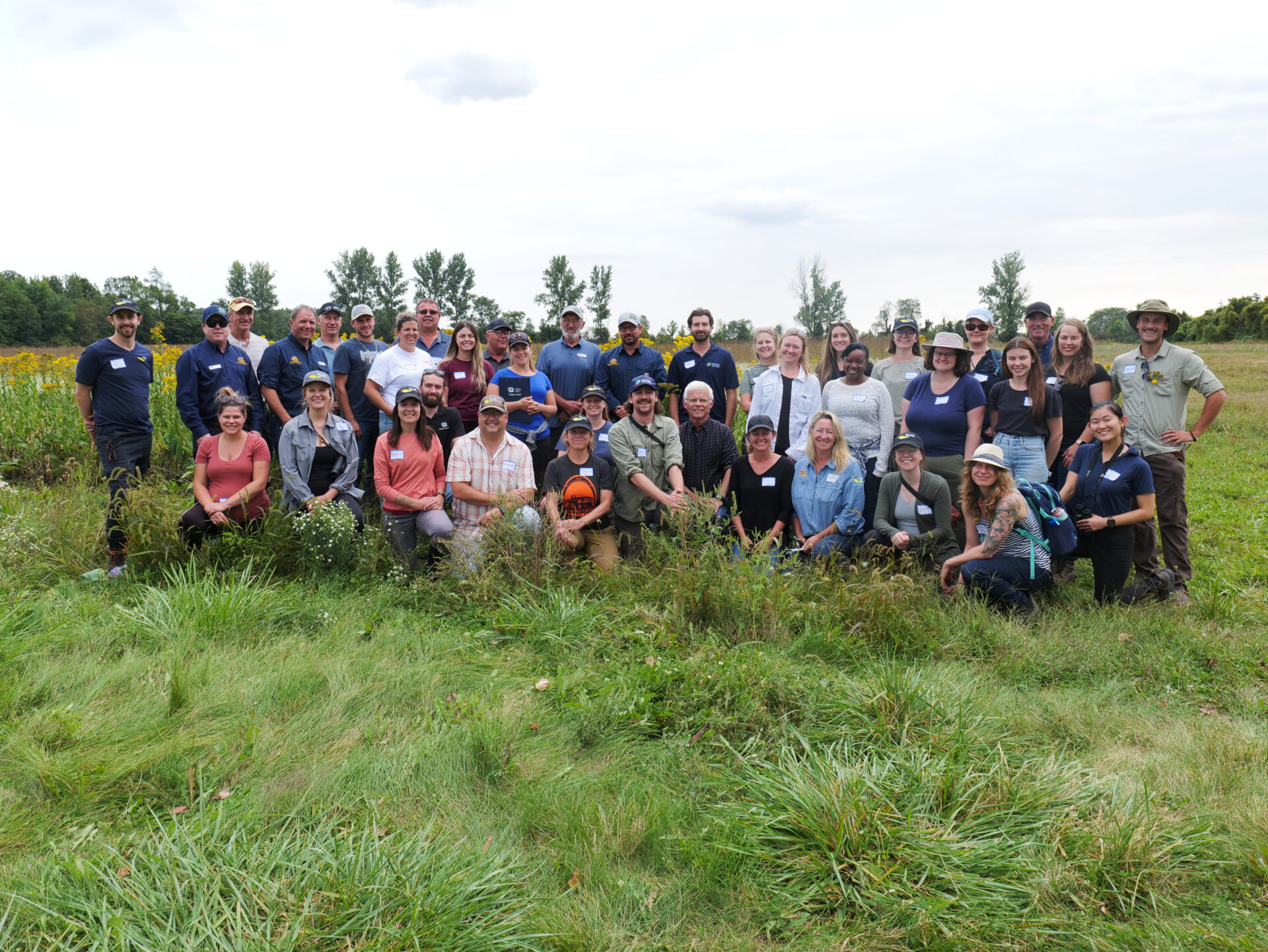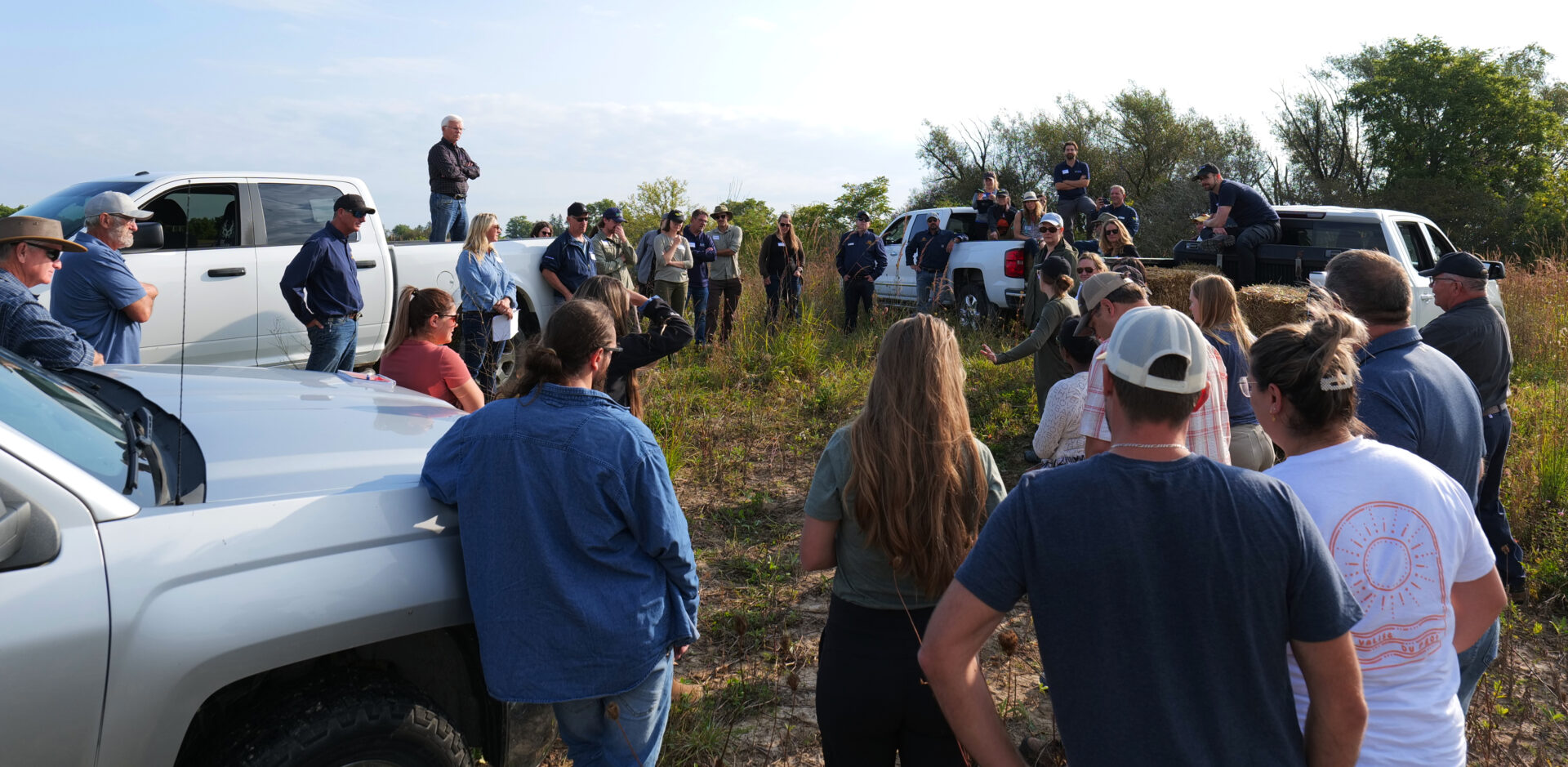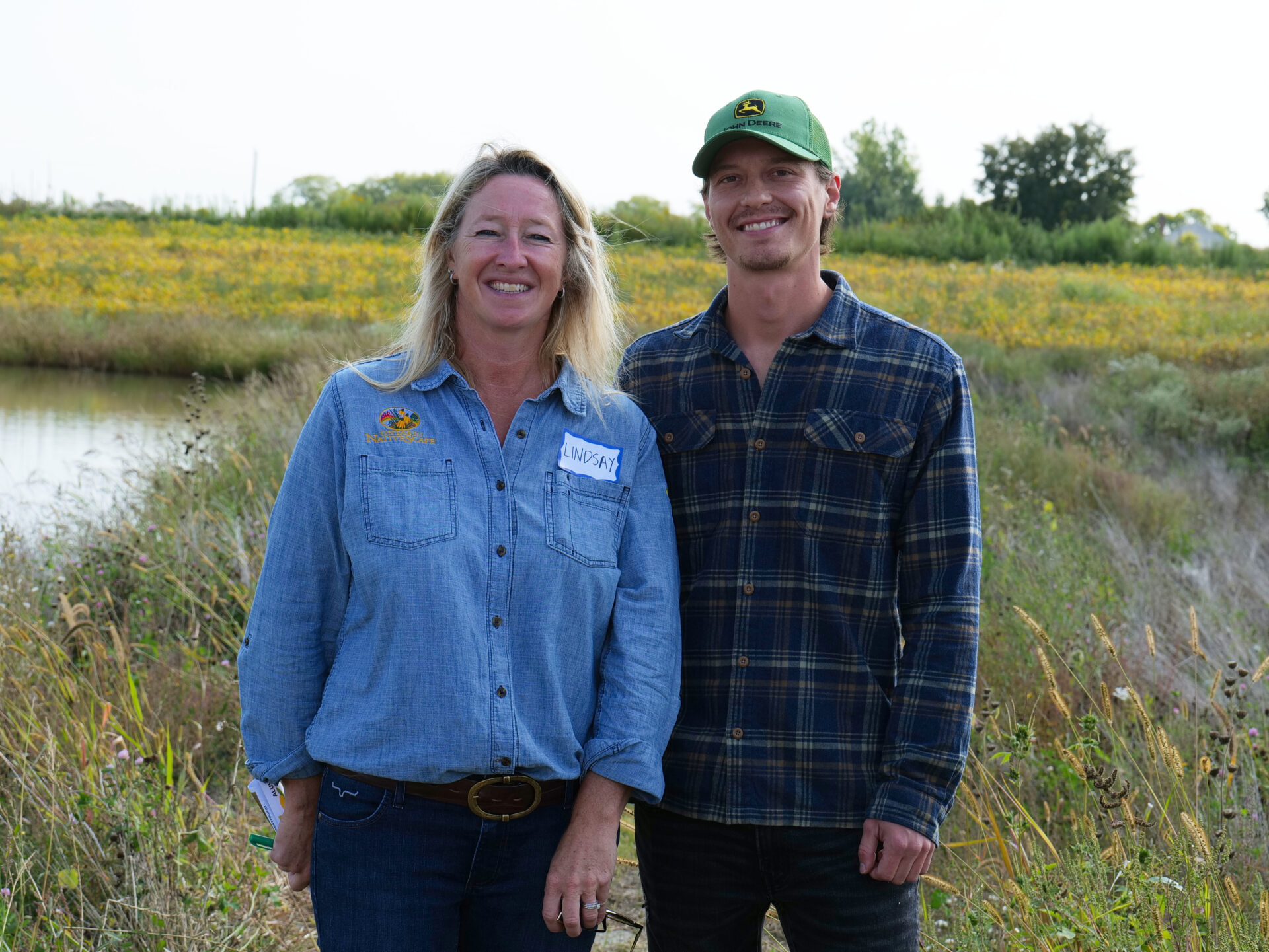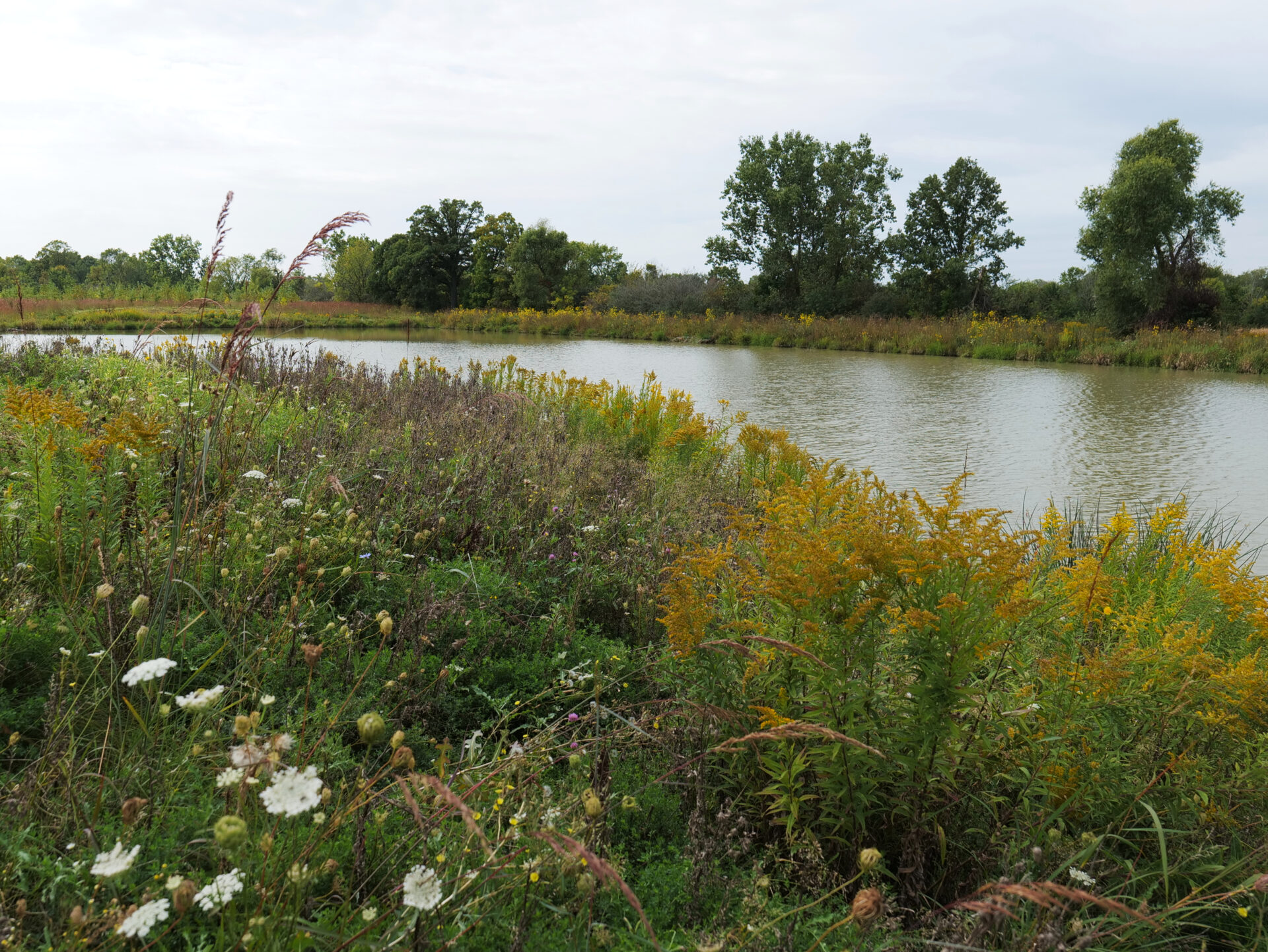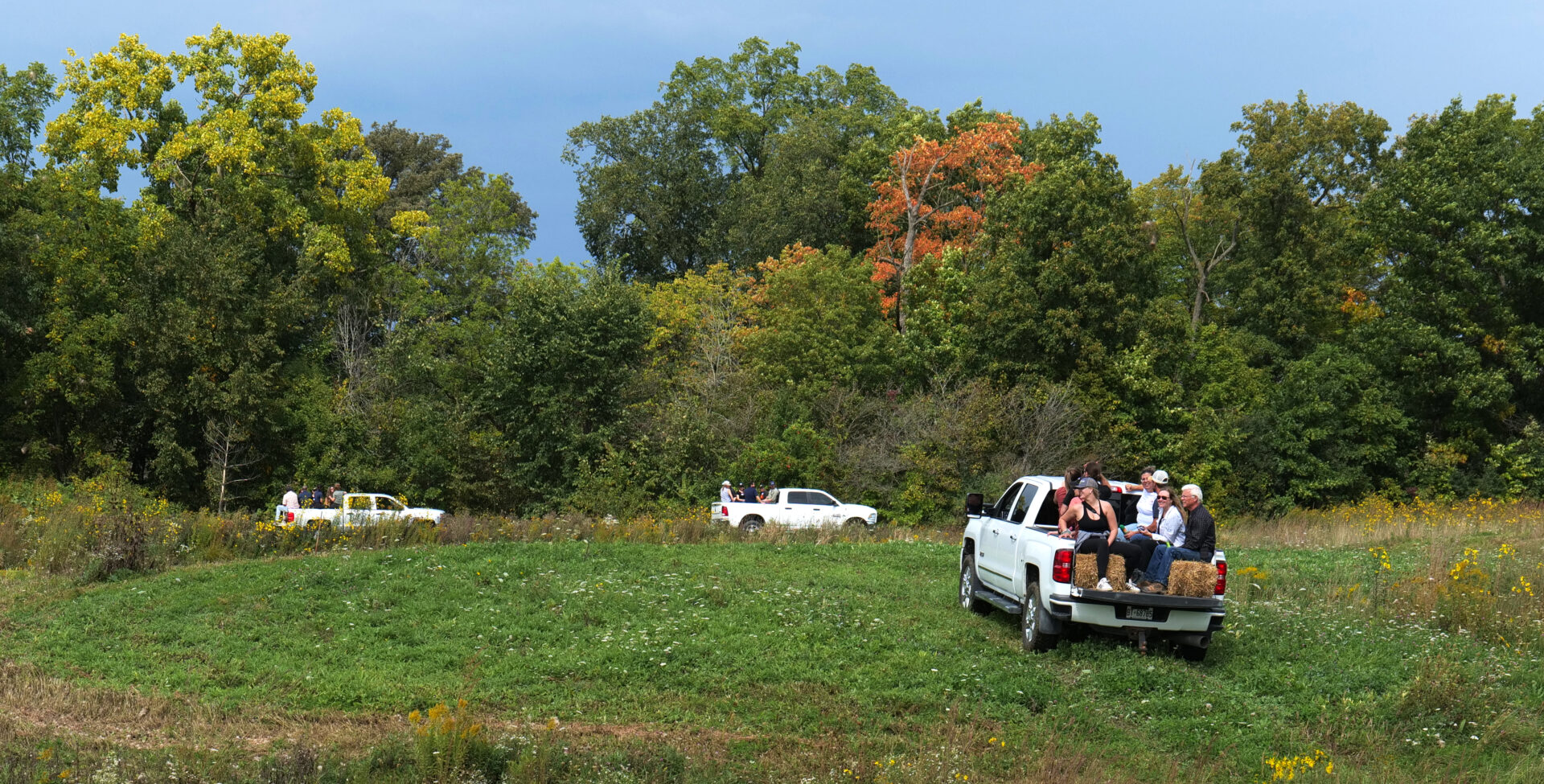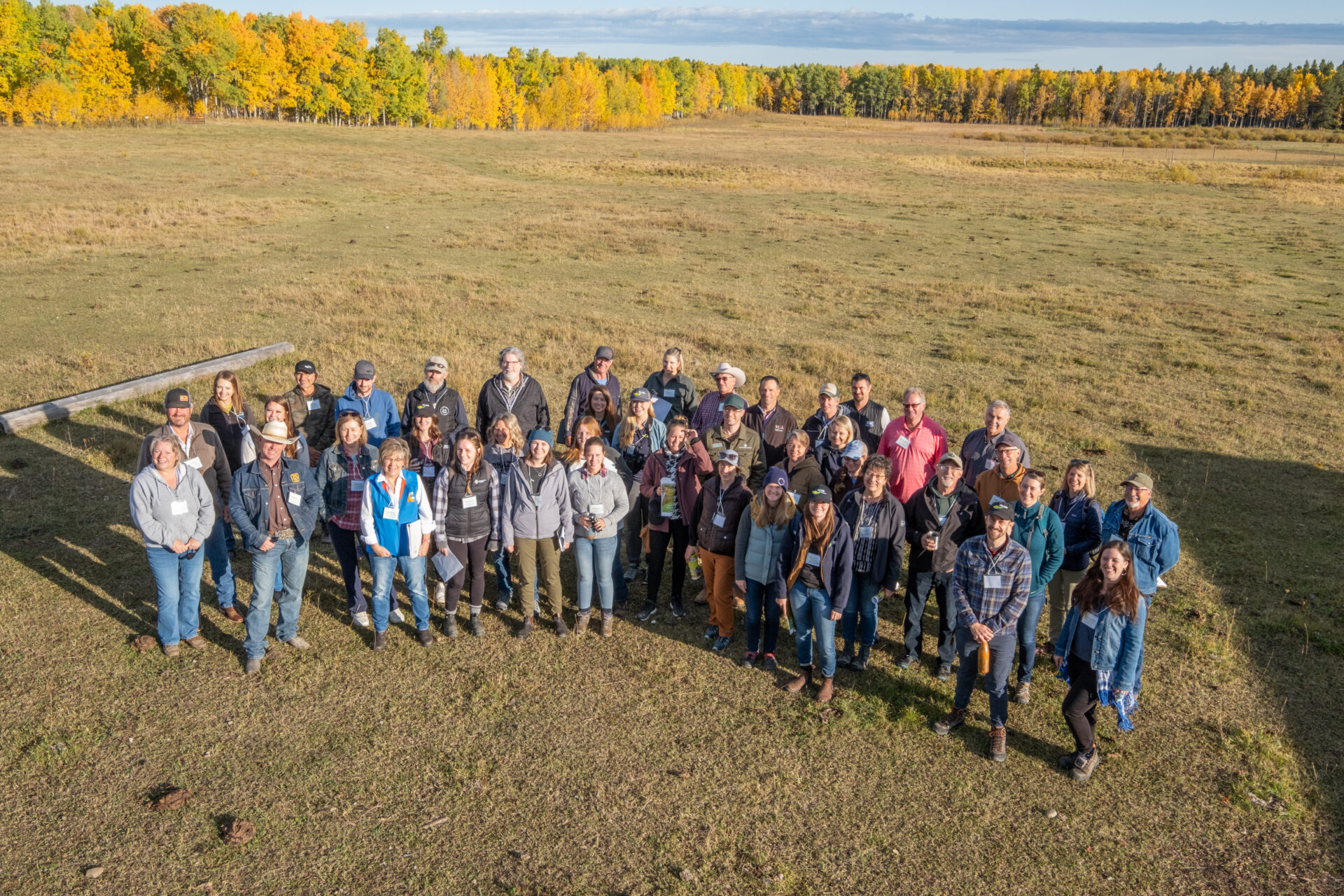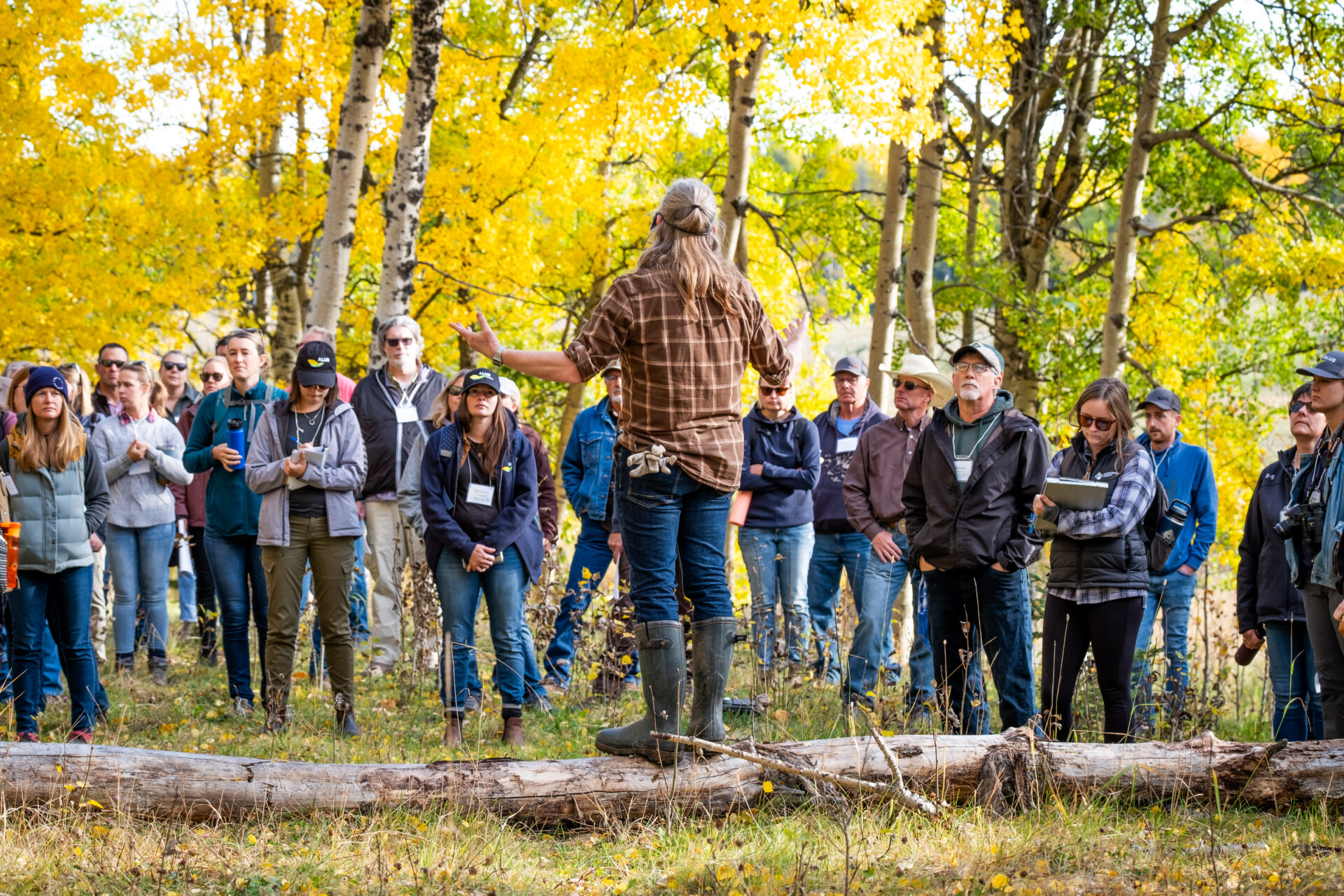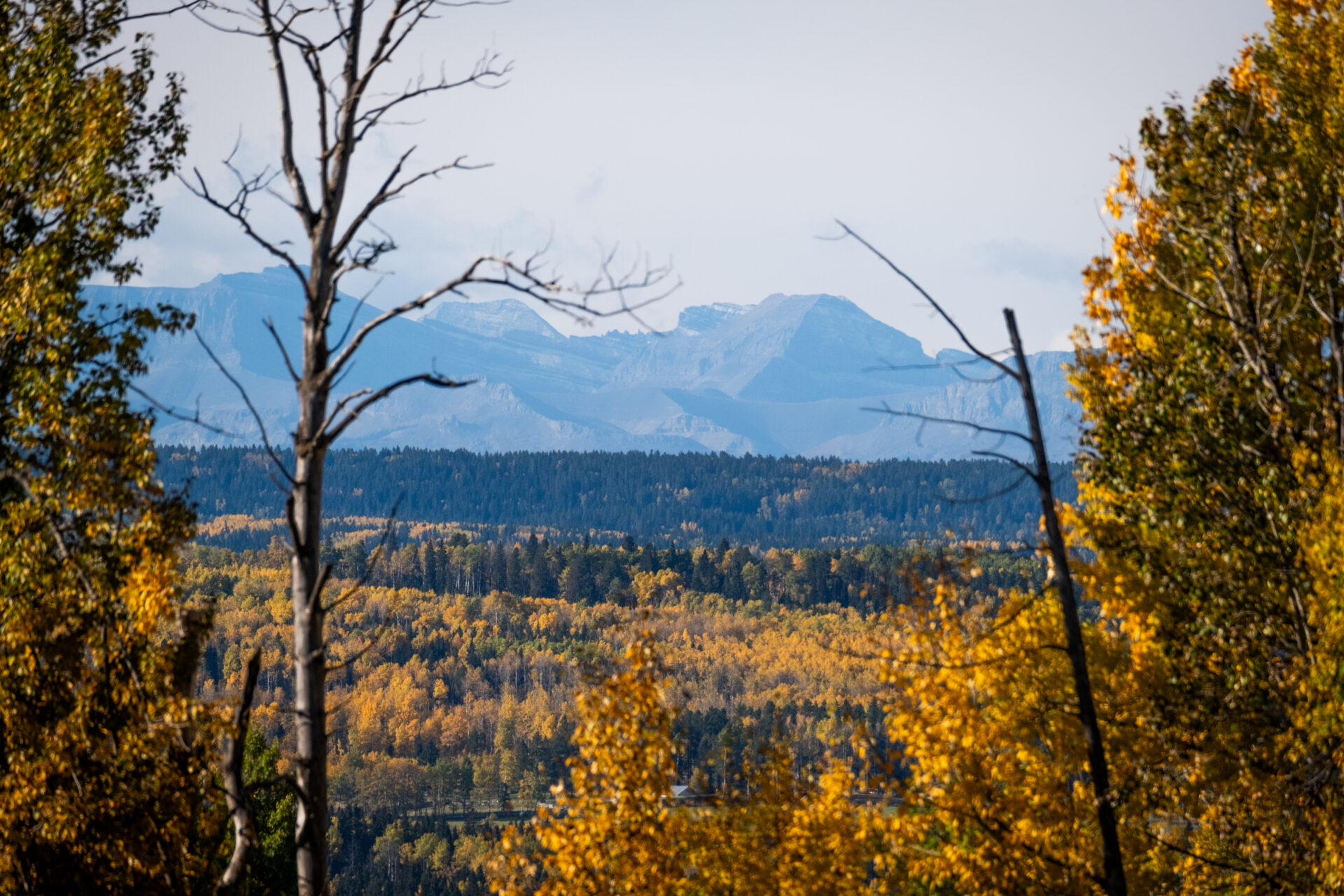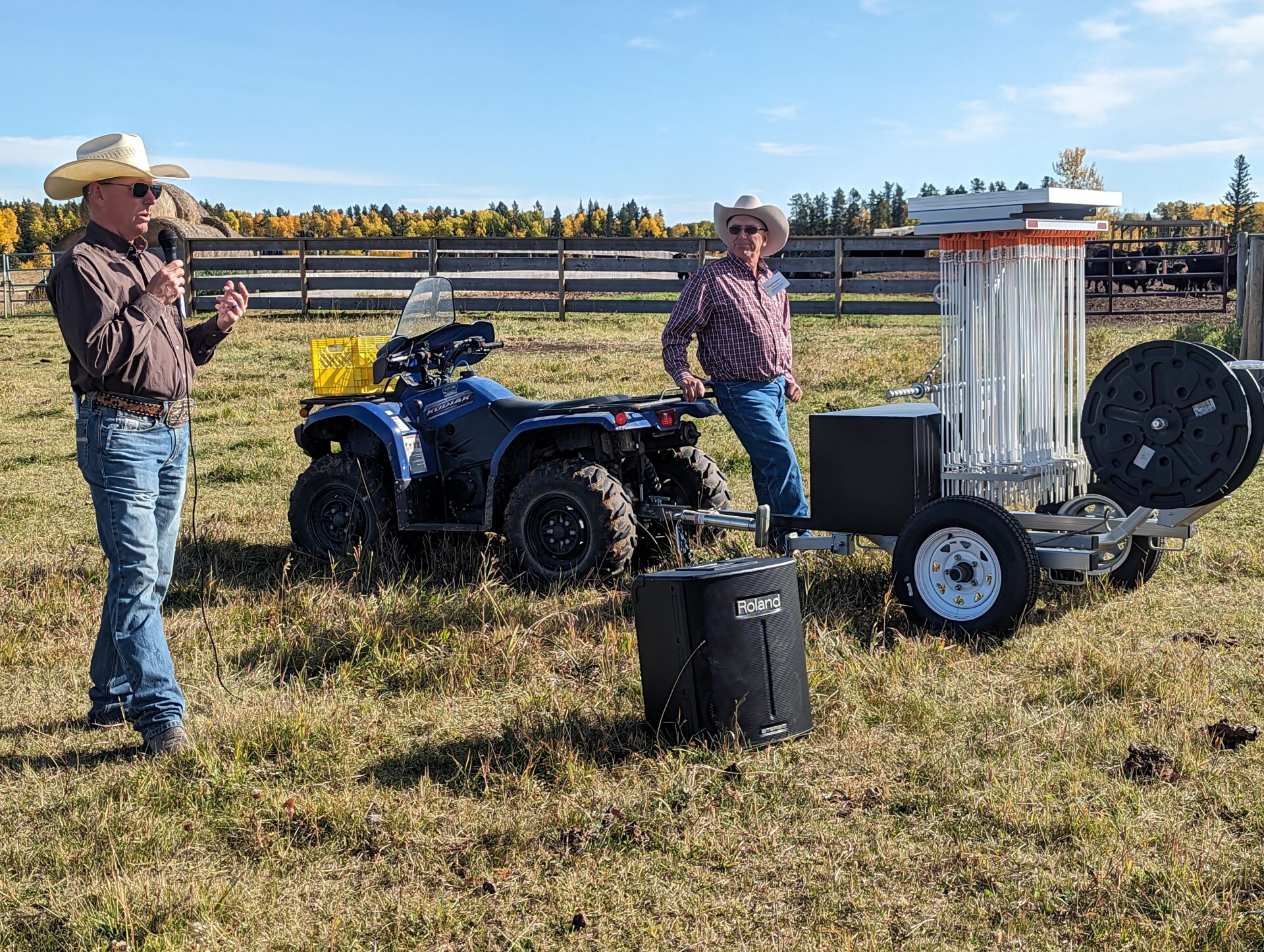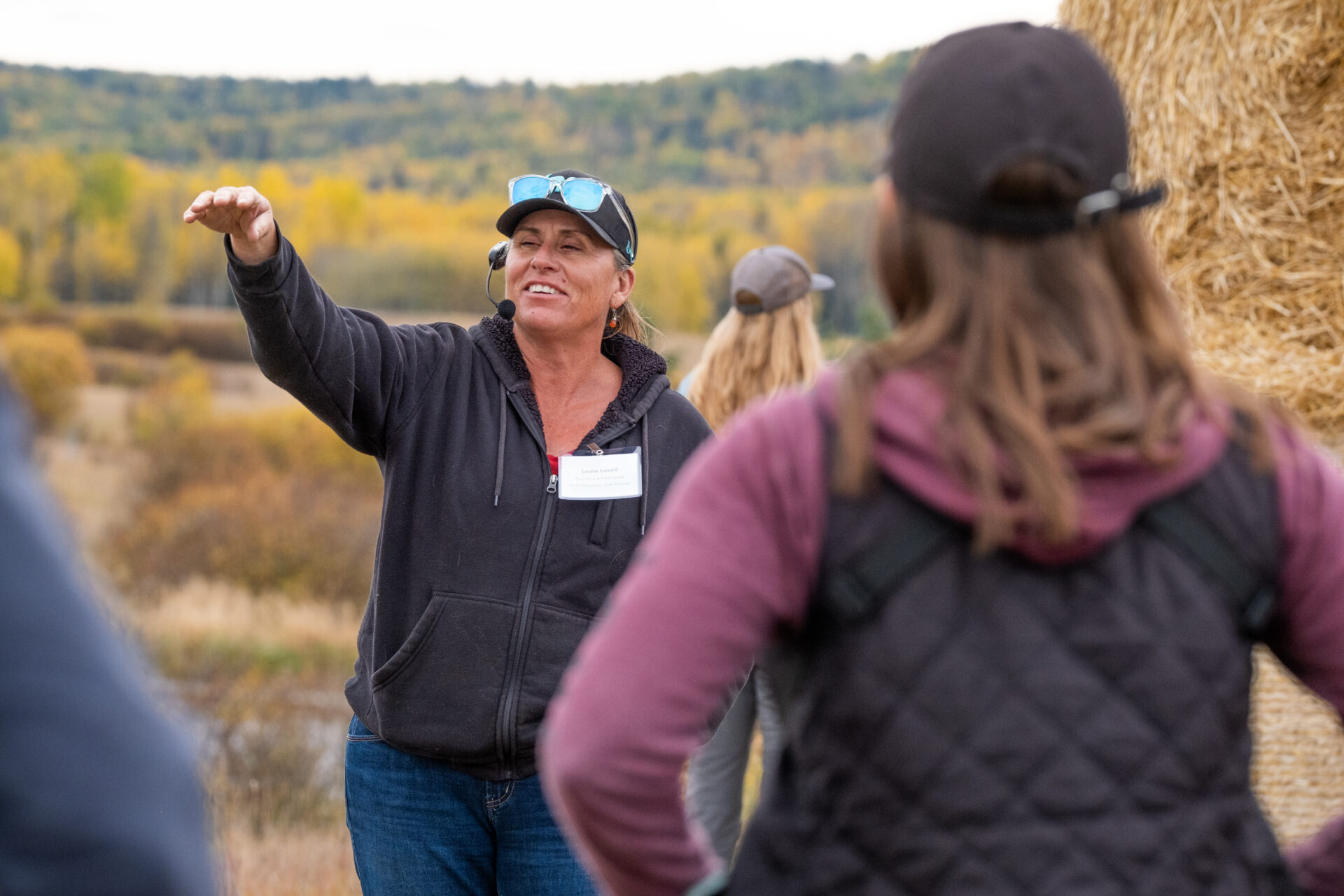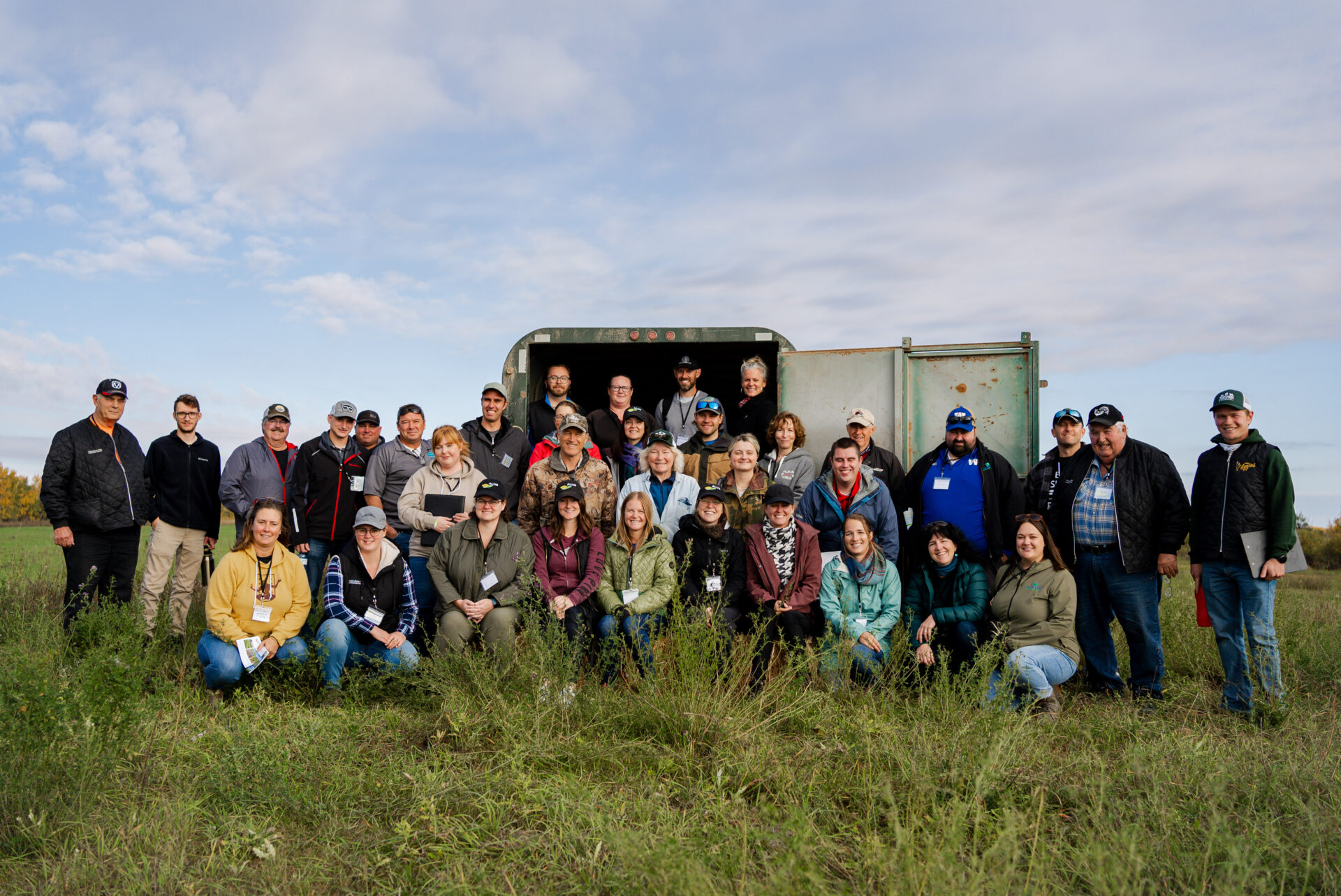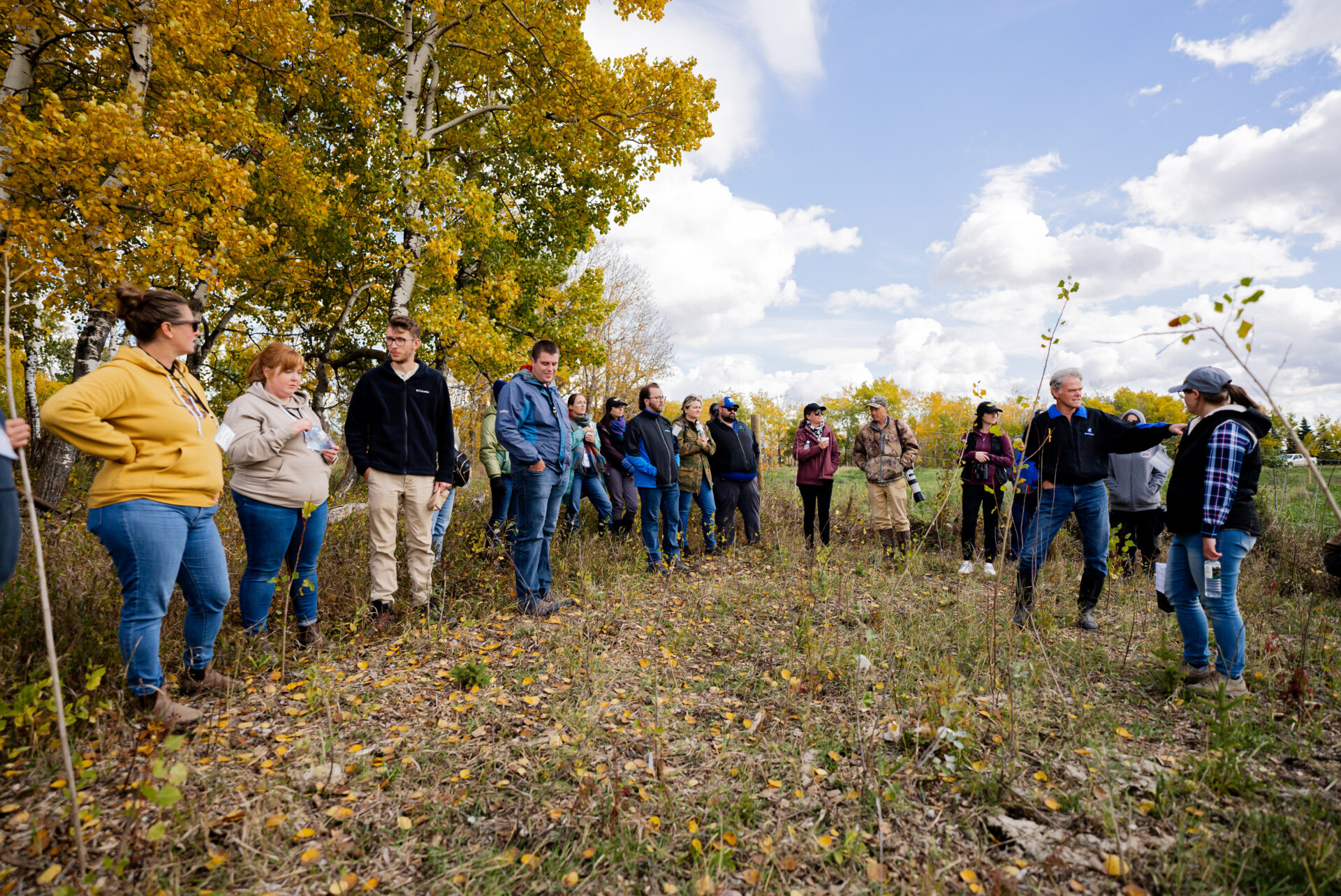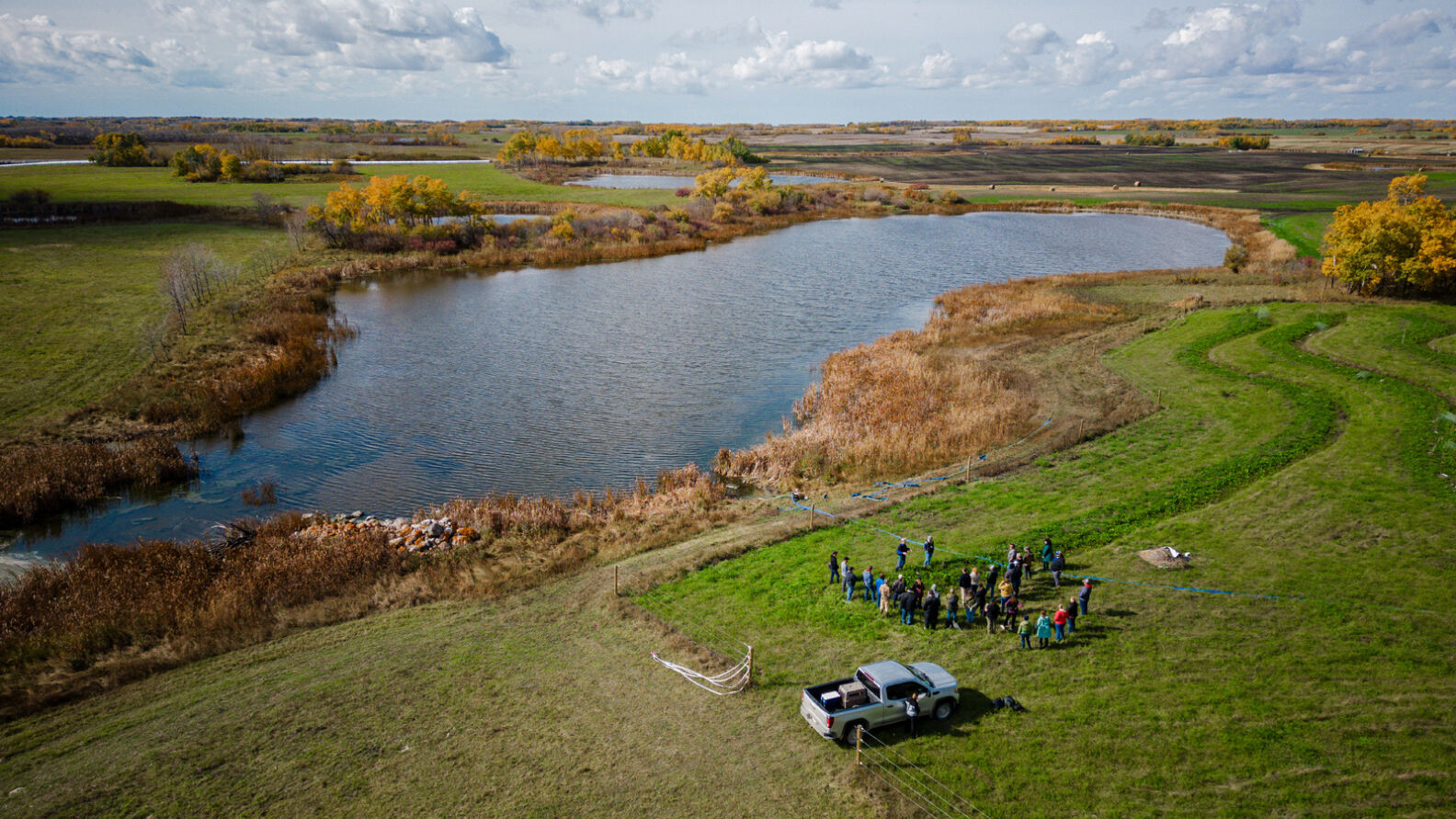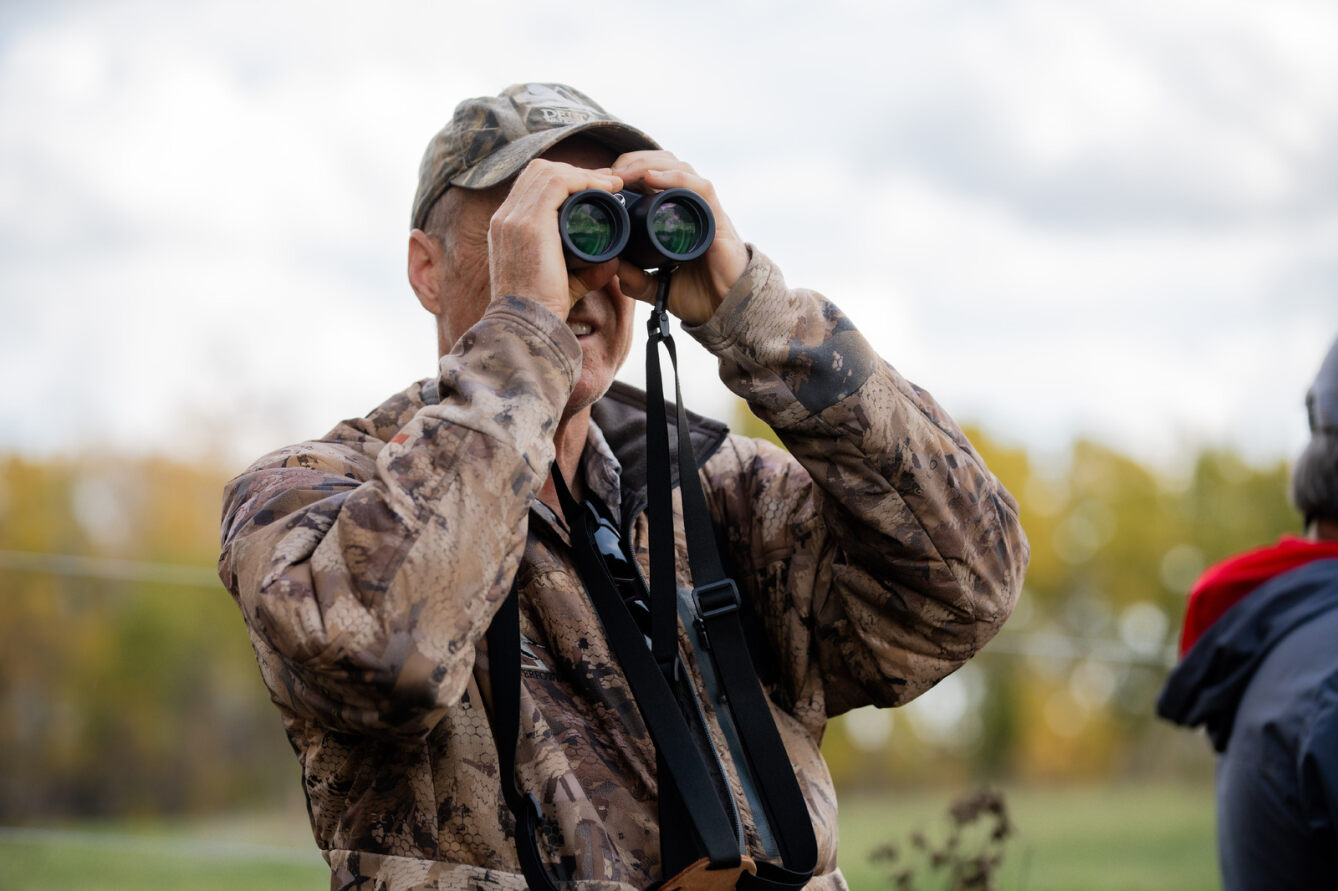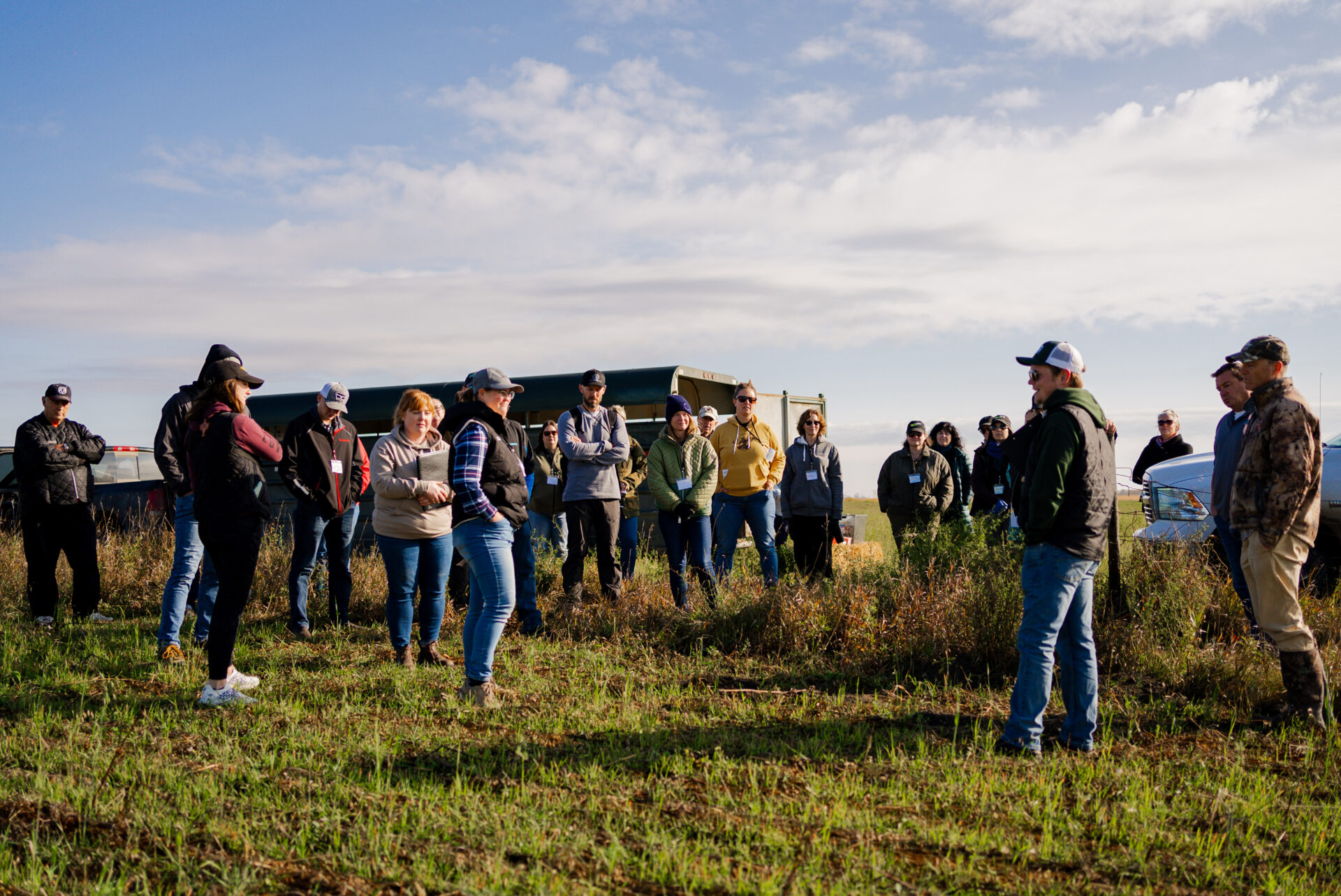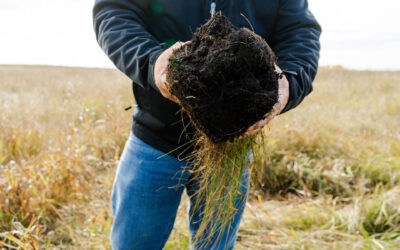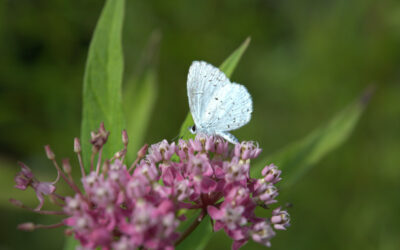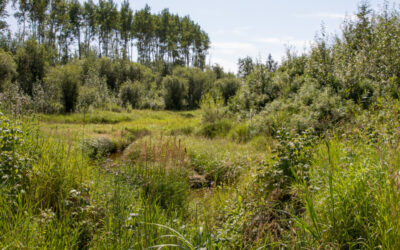ALUS team members met at three field events across Canada to share successes and celebrate their shared work.
East Hub Field Conference
The first site toured was at the Miller Farm where ALUS team members had the opportunity to view 6 acres of tallgrass prairie. This project creates habitat for wildlife and helps filter farm runoff.
The group then stopped at Tennyson Farm where an erosion control project was introduced to help stabilize a highly erodible gully. Aubrey Lang, co-owner and operator of Tennyson Farm, outlined his motivations for integrating environmental practices on his farm, including his ALUS project. The project site has developed into a highly productive wetland habitat, benefiting local wildlife and helping to manage soil conservation and agricultural runoff for the Langs.
The tour continued with a visit to Robson Farm Properties and the Clay Creek Watershed Restoration Project. This site boasts over 8 kilometers of projects along Clay Creek, an important tributary of the St. Clair River.
Next, team members visited the farm of Jerry and Glenda Young. Their ALUS project is comprised of a multi-wetland site that diverted surface and tile drainage from flowing directly into the Clay creek, Learn more about the Young’s project site through this video profile of Jerry and Glenda.
A highlight of the tour included a stop at the Ontario Nativescape Native Seed Nursery. This nursery was created with the intention of propagating locally grown tallgrass prairie plants. The site has expanded to produce over 40 native flowers and 5 native grass species. Ontario Nativescapes has been a leader in tallgrass prairie restoration in Southern Ontario and a valuable partner for ALUS communities across the region.
The group then visited Mary Ellen King’s farm. The land has been in the King family since the 1830s. With ALUS, the Kings have introduced many projects on their farm including wetlands, riparian buffers, forest habitat, shelterbelts, hedgerows and native tallgrass prairie. The main wetland project is a feature of the landscape that is beautiful to behold. Having diverted the farm’s tile drainage outlets into these settlement ponds, the project assures that the rain runoff from 1,075 acres of farmland now flows directly into the wetlands and is cleansed through this effective nature-based solution.
The ALUS national team would like to express sincere gratitude to Lindsay Buchanan, ALUS Lambton Coordinator, and Ian Cameron, Habitat Technician, for their excellent work in hosting this tour for their colleagues in Ontario and Quebec.
West Hub Field Conference
In Alberta, ALUS team members met with local coordinators and PAC members from nearly 18 communities to discuss ALUS. In Alberta, ALUS national team members met with local coordinators and PAC members in Sundre, north of Calgary. Enthusiasm for ALUS is high in Alberta, and it was a pleasure to have ALUS Mountain View County welcome participants from across Alberta and national staff from across the country.
During the field tour, the group visited several project sites in Mountain View County. The tour began with a visit to Little Loaves Farm, north of Sundre, Alberta. Owners Jerremie and Rita Clyde manage a herd of Yak and acres of grassland and forest, with the help of their two children.
Jerremie led a walking tour through the property’s poplar forest and grasslands discussing the farm and the many benefits they see from their ALUS projects, including benefits to water resource management and wildlife habitat, along with wildlife friendly fencing that facilitates intensive rotational grazing for the benefit of range health.
The tour also featured a presentation on forage and pasture health at the adjacent Vancuren farm from Greg Paranich, Ag Field Specialist with Grey Wooded Forage Association. Greg described the importance of keeping the soil covered and increasing the water holding capacity of the soil. The Vancuren’s have implemented a later season grazing practice to benefit the ecological function of their land.
The tour’s second stop visited the rural Bearberry area, and the Temple Creek Bioengineering site, a restoration project taken on by Dean and Lesley Lovell, along with partners Mountain View County, Alberta Conservation Association and Cows and Fish.
Kelsey Spicer-Rawe, Cows and Fish Riparian Specialist, described the features of this thriving and innovative riparian restoration project. The bioengineering project used live stakes that were sunk down to the water table to promote natural control features for erosion along Temple Creek. The project has provided a great deal of insight and learning for how to deploy this innovative practice.
To complete the tour, team members stopped at the Lovells’ ALUS wetland project. The project provides a habitat for local waterfowl. The Lovells showcased their alternative watering system, which provides clean and accessible water for their herd and prevents livestock from disturbing the wetland habitat, while still providing them with fresh, clean water year-round.
An additional feature of the West Hub Field Conference was the presentation of the Dave Reid Awards following the field tour. Over supper, Wayne and Jesse Pukalo were recognized with the 2023 Dave Reid Award, for their outstanding efforts to help grow the local ALUS program. ALUS also recognized runner-up, Bruce Beattie, an outstanding ALUS advocate who was recently inducted into the Alberta Agricultural Hall of Fame.
ALUS extends gratitude to Lorelee Grattidge, ALUS Mountain View County Coordinator, for going above and beyond to host the field conference.
Prairie Hub Field Conference
Together, the national and local teams visited two project sites. The first site was ALUS participant Zack Koscielny’s farm, Green Beach Farm & Food, nestled Southwest of Onanole. Zack has a variety of projects newly established with ALUS, including 3 pollinator buffer strips, totaling 1.4 acres, introduced in 2022.
In addition, Zack joined the ALUS pilot projects Grazing Forward, focused on enhanced grazing, and Growing Roots, focused on regenerative agriculture practices. With Grazing Forward, Zack enrolled 50 acres of pastureland, managing with a Target Stock Density of 80,000 lbs./acre and Target Rest Period of 90 days. With Growing Roots, Zack seeded another 139 acres of various cover crop mixes and in 2023 an additional 98 acres were added into the program. Management consists of diverse practices, including zero till, roller crimping and grazing.
The second site visited was the Northam Family Farm. Doug Northam created a permaculture site in 2022 and planted fruit trees and shrubs on 280 meters of constructed berms with uphill swales that were dug for water storage. The berms and swales are under-seeded with a perennial pollinator blend. In 2023, the Northam’s also incorporated two forest planting sites.
ALUS extends thanks to ALUS Assiniboine West Coordinators, Elisha Johnson-Jensen and Stephanie Manning, who were integral in arranging this phenomenal event.
The ALUS national team is proud to be a part of the growth and expansion of communities operating and launching ALUS projects in North America. A core strength of the ALUS model comes from the grassroots, community-led structure of the organization.
The annual field conferences are critical to developing a rich sense of shared purpose and community among the program hubs and with the national staff. Together, these dedicated and hard-working people are helping farmers lead the way as solution providers in their communities and for the environment.

